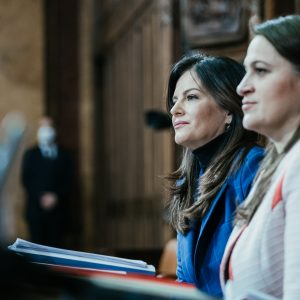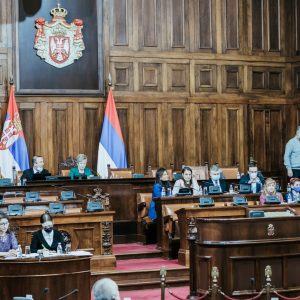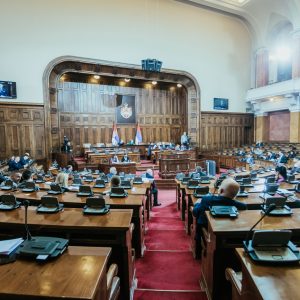
Tonight, the National Assembly has adopted the Bill on Electing the President of the Republic of Serbia, Bill on the Election of Members of the Parliament and the Bill on Local Elections, which significantly improved the conditions for conducting elections at the national and local levels.
Amendments to the set of election laws are the result of parallel cross-party dialogues on electoral conditions, with and without the participation of representatives of the European Parliament, the implementation of recommendations of the Office for Democratic Institutions and Human Rights of the Organization for Security and Cooperation in Europe (OSCE/ODIHR). as well as of public debates in which Civil Society Organizations which deal with electoral matters and persons from local self-governments participated, and whose significant number of objections and proposals have been integrated into the proposed amendments to the laws.
Amendments to the election laws establish a higher degree of democracy and transparency of the election process, while the Laws on electing the President of the Republic of Serbia and on local elections are harmonized with the solutions from the Law on the Election of Members of the Parliament.
The novelties introduced by these three election laws are important in terms of protection of rights in election procedures and for easier candidacy of political parties of national minorities, as well as in terms of organization and transparency of the work of election administration bodies. Among other things, the position of submitters of electoral lists is being facilitated, especially the position of minority electoral lists, while the solutions which have thus far been part of the instructions issued by the Republic Electoral Commission, as examples of good practice, are becoming legal standards.
The Law on Electing the President of the Republic of Serbia does not introduce substantial novelties into this election procedure; however, it is harmonized with the Law on Election of Members of the Parliament, while the Law on Local Elections introduces several novelties, including the establishment of the range of members of the electoral commission depending on the number of inhabitants of the Local Self-government Unit, new deadlines for deciding on announcing elections in relation to the expiration of the mandate of councillors of the current convocation of the LSU Assembly, determining the minimum required number of voters who support the electoral list with their signatures, new deadlines for constituting the Assembly in order to avoid obstruction etc.
The National Assembly has also adopted the Bill on Amendments to the Law on Wages of Civil Servants and State Employees, which falls within the scope of work of the Ministry of Public Administration and Local Self-Government, and which changes the coefficients for calculating and payment of wages of employees who perform accompanying auxiliary technical work in state bodies, which will include over 4,500 employees and enable the improvement of their financial position, but also contribute to the motivation of employees and the quality of work, especially in the judiciary.
Photo gallery







